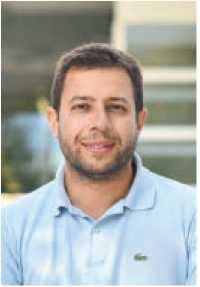Neophytos Neophytou「Zhen Li\ Patrizio Graziosi2
1 School of Engineering, University ofWarwick, Coventry, CV4 7 AL, UK;
2 CNR - ISMN, Bologna, Italy
EXTENDED ABSTRACT: Over the last two decades a plethora of new thermoelectric (TE) materials, their alloys, and their nanostructures were synthesized. The ZT figure of merit, which quantifies the efficiency of these materials increased from values of unity to values consistently beyond two across material families [1]. At the same time, the need to identify and optimize such materials, has stressed the importance fbr advanced numerical tools for computing electronic transport in materials with arbitrary bandstructure complexity, multiple scattering mechanisms, and a large degree of nanostructuring. The typical constant relaxation time approximation offers limited predictive capabilities, because the scattering processes are energy, momentum, and band dependent, T(E,k,n). Fully ab initio electron-phonon scattering methods exist, but they are computationally prohibitive and rarely used. In this talk I will describe the development of our recently deployed advanced electronic transport simulator ElecTra [2], which considers arbitrary DFT electronic structures of materials and allows fbr their full T(E,k,n) dependence, providing accurate and reliable extraction of TE properties. The electron-phonon scattering times considered are based on deformation potential scattering. For this, I describe a novel method that we have developed to extract the necessary deformation potentials from first principles [3]. These new methods allow fbr the calculation of TE properties at the same accuracy as fully ab initio methods, but at a fraction of the computational cost, typically at less than 10%. Examples of material perfbnnances are discussed, including the development of descriptors that can be used in materials screening [4].
Keywords: electronic transport; thermoelectrics; complex bandstructure materials;
REFERENCES
[1] D. Beretta, N. Neophytou, et al., Materials Science and Engineer.: R: Reports, 138, 100501, 2019.
[2] https://github.com/PatrizioGraziosi/ELECTRA
[3] 乙 Li, P* Graziosi andN. Neophytou, Phys. Rev. B, 104, 195201, 2021.
[4] P. Graziosi, C. Kumarasinghe and N. Neophytou, ACS Appl. Energy Mater., 3, 6, 5913-5926,2020.

Neophytos Neophytou has completed his PhD Purdue University, Indiana, USA in 2008 and Postdoctoral Studies from the Institute fbr Microelectronics, Menna University of Technology from 2008-2013. He is currently a Professor at the University of Warwick in the UK. He was awarded the 2015 ERC Starting Grant and the 2021 ERC Consolidator Grant from the European Commission. His area of specialisation is theory, computational modelling and simulation of transport in nanoelectronic devices and thermoelectric materials. At Warwick he runs the Computational Nanotechnology Lab in the School of Engineering. He has published -100 papers in reputed journals and more than 150 conference proceedings, as well as a Springer Physics Brief on thermoelectric transport.